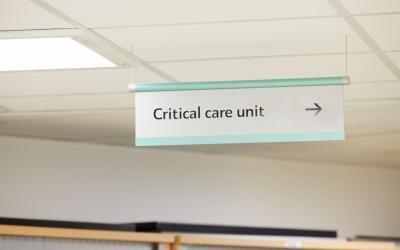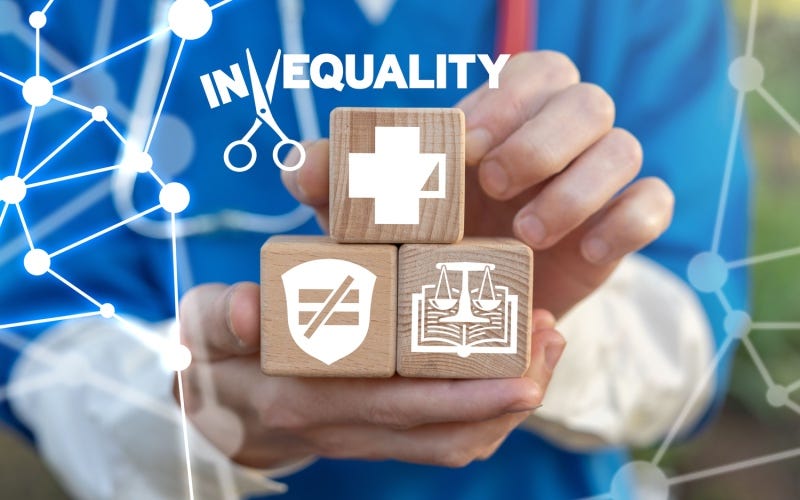Nurturing holistic development in early childhood

Early childhood is arguably the most important period of a child's development. It lays the foundation for their future growth and their wellbeing into adulthood.
Holistic development, which emphasises the interconnectedness of various aspects of a child's growth, plays a pivotal role during these formative years. And according to Unicef, scientific research makes it clear that early childhood sets the tone for a person’s entire life:
“Children’s brains are built, moment by moment, as they interact with their environments. In the first few years of life, more than one million neural connections are formed each second – a pace never repeated again,” Unicef states. “The quality of a child’s early experiences makes a critical difference as their brains develop, providing either strong or weak foundations for learning, health and behaviour throughout life.”
Find out more about holistic development, including what it means in early childhood, what it includes, why it’s important – and, crucially, how educators can foster holistic development in young children.
Understanding holistic development
Holistic development in early childhood refers to the comprehensive growth of a child across various areas, including biological, cognitive, and social-emotional development. It recognises that children are not merely learners, but complex individuals, and each aspect of their development influences the others.
Unlike traditional approaches to development, which focus on isolated areas of development, a holistic approach ensures all dimensions of a child's being are nurtured together to promote their overall health and well-being.
The key areas of holistic development
- Biological development. Biological development, also known as physical development, is an essential aspect of holistic development in early childhood. It involves the growth and refinement of gross motor skills, fine motor skills, hand-eye coordination, and the overall health and wellbeing of children.
- Cognitive development. Cognitive development refers to a child's mental processes, such as thinking, problem-solving, and language skills. Also referred to as intellectual development, it encompasses the development of memory, attention, and the ability to understand and communicate ideas.
- Social-emotional development. Social-emotional development involves a child's ability to understand and manage their emotions, form relationships, and interact with others. It includes the development of the child’s empathy, self-esteem, self-expression, and social skills.
The importance of holistic development
Holistic development is vital during the early years of childhood because it provides a strong foundation for the child's lifelong learning and wellbeing. By nurturing all aspects of a child's development, educators can help them:
- reach their full potential
- develop a positive sense of self
- build essential skills that are necessary for success in later life.
Moreover, holistic development supports the brain development of a child, promoting neural connections and enhancing their capacity to learn and adapt to their environment.
As pointed out by Birth to 5 Matters, a UK organisation that provides guidance to early years foundation stage practitioners, when a child encounters objects, events, and other people, all spheres of their development and learning are in action at the same time:
“In the EYFS (Early Years Foundation Stage), areas are described separately in order to break down the complexity of development and learning, but it is important to keep the whole child in mind.”
Early years education in the United Kingdom
In England, early childhood development is assessed within schools and by childcare providers by what’s called the early years foundation stage (EYFS) framework. It outlines areas of learning, such as communication and language, understanding the world and social development.
Early childhood education in the UK generally focuses on learning activities that are play-based, and aims to see children reach specific milestones within their overall development.
How to foster holistic development in early childhood
It’s clear that in the early years of a child's life, holistic development can play a pivotal role in shaping their overall wellbeing. By adopting a holistic approach, educators can create learning environments that foster healthy development. In fact, there are a number of ways educators can support the holistic development of children. For example, they can:
Create a space for holistic learning
Early years educators should design learning environments that offer diverse and engaging experiences, catering to a child’s interests and individual needs. A holistic education includes providing a balance of structured and unstructured play, incorporating sensory activities, and offering learning opportunities both indoors and outdoors.
Promote integrated learning experiences
By integrating various aspects of a child's development, educators can encourage holistic learning. For example, incorporating storytelling into language activities can promote cognitive and language development while also fostering emotional intelligence and empathy.
Emphasise play-based learning
Play is a powerful tool for holistic development. Educators should aim to provide open-ended and imaginative play materials, allowing children to explore, experiment, and problem-solve. Through play, children develop cognitive, social, emotional, and physical skills in an integrated manner.
Build relationships and connectedness
Cultivating strong relationships between caregivers, educators, and children creates a sense of belonging and emotional security. This promotes social and emotional development and provides a foundation for positive interactions and communication.
Take an individualised approach
Recognising each child is unique, educators should tailor their strategies to meet the specific needs and interests of individual children. This allows for personalised learning experiences that support holistic development.
Build holistic development into education
Deepen your knowledge of holistic, inclusive education – and its role in society – with the 100% online MA Special and Inclusive Education at Queen Margaret University. This flexible, part-time master’s course has been carefully designed to fit around the busy schedules of working professionals, ensuring that studies can be conducted alongside work and family commitments. You can learn while continuing in your current role, and immediately apply what you learn to your professional context.
Through an interdisciplinary lens you will learn about the role an inclusive education plays in emancipation, liberation, and true democracy. You will also examine the structural inequalities in both society and education, and their impact on educational outcomes. In doing so, you will learn ways to address these inequalities in different contexts to ensure that education is inclusive for all.

















The information below is required for social login
Login to your Account